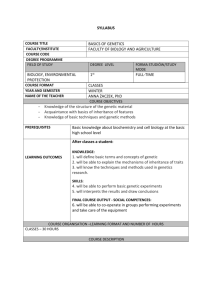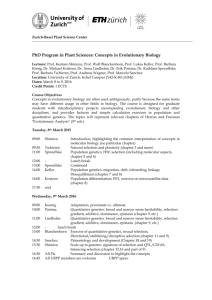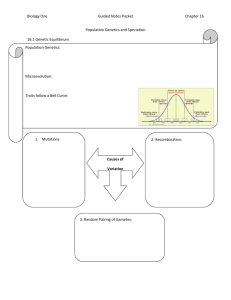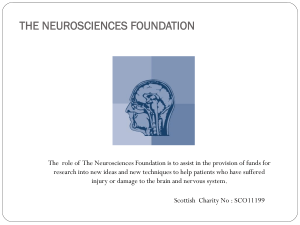Latsoudis Helen, MSc, PhD
advertisement
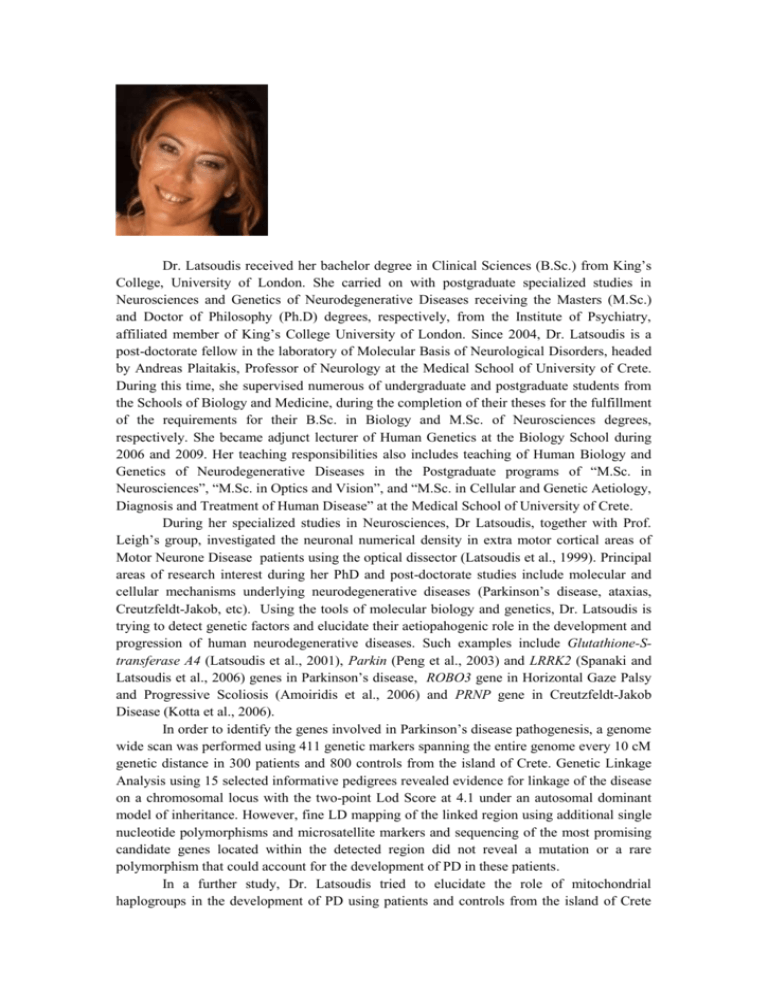
Dr. Latsoudis received her bachelor degree in Clinical Sciences (B.Sc.) from King’s College, University of London. She carried on with postgraduate specialized studies in Neurosciences and Genetics of Neurodegenerative Diseases receiving the Masters (M.Sc.) and Doctor of Philosophy (Ph.D) degrees, respectively, from the Institute of Psychiatry, affiliated member of King’s College University of London. Since 2004, Dr. Latsoudis is a post-doctorate fellow in the laboratory of Molecular Basis of Neurological Disorders, headed by Andreas Plaitakis, Professor of Neurology at the Medical School of University of Crete. During this time, she supervised numerous of undergraduate and postgraduate students from the Schools of Biology and Medicine, during the completion of their theses for the fulfillment of the requirements for their B.Sc. in Biology and M.Sc. of Neurosciences degrees, respectively. She became adjunct lecturer of Human Genetics at the Biology School during 2006 and 2009. Her teaching responsibilities also includes teaching of Human Biology and Genetics of Neurodegenerative Diseases in the Postgraduate programs of “M.Sc. in Neurosciences”, “M.Sc. in Optics and Vision”, and “M.Sc. in Cellular and Genetic Aetiology, Diagnosis and Treatment of Human Disease” at the Medical School of University of Crete. During her specialized studies in Neurosciences, Dr Latsoudis, together with Prof. Leigh’s group, investigated the neuronal numerical density in extra motor cortical areas of Motor Neurone Disease patients using the optical dissector (Latsoudis et al., 1999). Principal areas of research interest during her PhD and post-doctorate studies include molecular and cellular mechanisms underlying neurodegenerative diseases (Parkinson’s disease, ataxias, Creutzfeldt-Jakob, etc). Using the tools of molecular biology and genetics, Dr. Latsoudis is trying to detect genetic factors and elucidate their aetiopahogenic role in the development and progression of human neurodegenerative diseases. Such examples include Glutathione-Stransferase A4 (Latsoudis et al., 2001), Parkin (Peng et al., 2003) and LRRK2 (Spanaki and Latsoudis et al., 2006) genes in Parkinson’s disease, ROBO3 gene in Horizontal Gaze Palsy and Progressive Scoliosis (Amoiridis et al., 2006) and PRNP gene in Creutzfeldt-Jakob Disease (Kotta et al., 2006). In order to identify the genes involved in Parkinson’s disease pathogenesis, a genome wide scan was performed using 411 genetic markers spanning the entire genome every 10 cM genetic distance in 300 patients and 800 controls from the island of Crete. Genetic Linkage Analysis using 15 selected informative pedigrees revealed evidence for linkage of the disease on a chromosomal locus with the two-point Lod Score at 4.1 under an autosomal dominant model of inheritance. However, fine LD mapping of the linked region using additional single nucleotide polymorphisms and microsatellite markers and sequencing of the most promising candidate genes located within the detected region did not reveal a mutation or a rare polymorphism that could account for the development of PD in these patients. In a further study, Dr. Latsoudis tried to elucidate the role of mitochondrial haplogroups in the development of PD using patients and controls from the island of Crete (Latsoudis et al.,2008). The results of this study were consistent with the possibility that the combination of common mtSNPs (present in ≥5% in the general population) can decrease the chance of developing PD, but this effect was minor in the Cretan population. Dr. Latsoudis is also involved in the detection of mutations and/or rare polymorphism of glutamate dehydrogenase 2 (GLUD2) as genetic risk factors for the development of neurodegenerative diseases, including PD, ALS, ataxias, etc. Recently, Prof. Plaitakis’ group reported that a gain-of–function variation in GLUD2-derived isoenzyme accelerates (6-13 years) the commencement of PD in three distinct populations from Greece and United States (Plaitakis et al., 2010). This effect is disease-specific since it was not replicated in a cohort of ALS patients from Crete and United Kingdom (collaboration of Dr. Latsoudis with Prof. AlChalabi and Prof. Shaw from Institute of Psychiatry of University of London). Currently Dr. Latsoudis, together with other members of Prof. Plaitakis’ team (Dr. Zaganas and Dr. Spanaki), aims to elucidate the expression pattern of hGDH2, coded by GLUD2 gene, in human peripheral tissues as well as in cell lines of different types of cancer.


